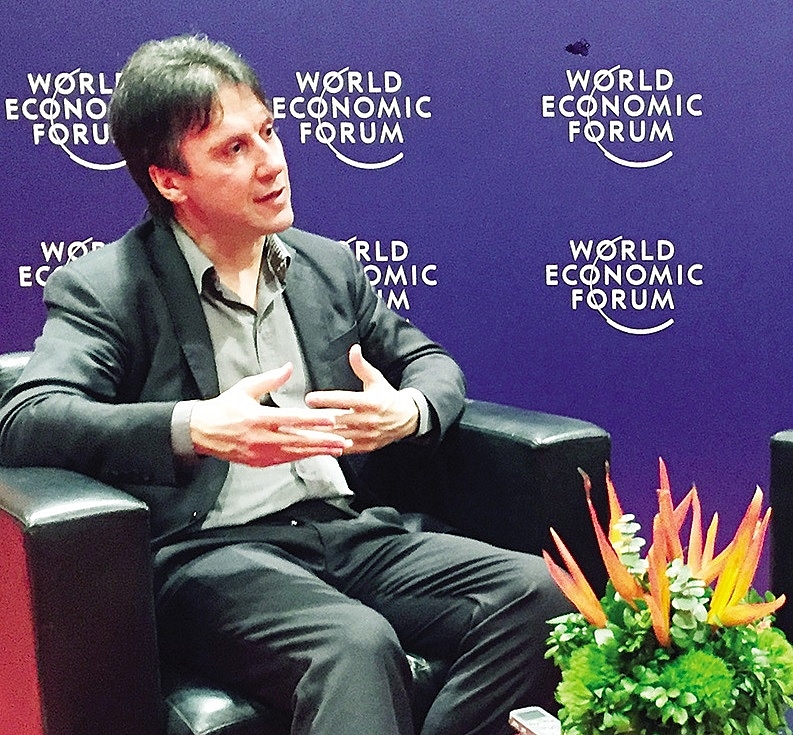5G will transform Vietnam’s economy
 |
| Denis Brunetti |
Can you tell us about Ericsson’s preparation for the launch of 5G networks globally and in Vietnam? How is it going?
We are expecting the commercial launch of 5G globally later in the year. The North American market will be first, followed shortly thereafter North East Asia. The commercial launch in Vietnam will likely be in 2020-2021 timeframe, with trials beginning as early as in 2019.
In terms of preparation, there are a lot of planning ongoing. It’s important to understand that 5G, unlike its predecessors, requires a lot more collaboration between governments, enterprises, and Ericsson as the vendor. 5G impacts enterprises and industries more than its predecessors, which were more about personal communication and the more pervasive use of the internet over mobile devices. 5G moves into the enterprise space and digitally transforms industries.
For that reason, there would require more co-operation, collaboration, and planning by enterprises as well as education institutions to make 5G a reality. The latter needs to work on vocational training, data science, and other things that will be required to stimulate the capabilities needed for future jobs.
Most people think that implementation of 5G technology would be complicated in Vietnam. What are your thoughts on this? And what are benefits can we expect from the new technology?
In fact, Ericsson has made implementation easy. 4G technology was introduced in Vietnam in 2015, and we have 50-per-cent of the market share in 4G across operators in the country. That technology is 5G-ready as the radios can be upgraded to 5G with remote software installations. So when we launch 5G, we can unleash it across the current 4G infrastructure.
Industries that will benefit the most from 5G are those that can leverage on the high speeds, ultra-low latency, and ultra-high reliability that 5G provide to create innovative products or services. 5G and the Internet of Things (IoT) will bring digital transformation to all industries. These technologies will digitally transform all other industries, making them more efficient, more cost-effective, more affordable, and more accessible to more people.
5G also has the potential to drive new revenue streams. Ericsson’s 5G Business Potential report estimates that for Vietnam, there will be an additional $3.17 billion in revenue opportunities for telecom operators addressing industry digitalisation with 5G technology. The largest opportunity for operator-addressable 5G-related revenues will be in the manufacturing and energy and utilities sectors. We want to help operators realise the value of 5G as well as support the acceleration of the Fourth Industrial Revolution for the benefit of Vietnam.
How will 5G technology affect the need for cybersecurity?
Cybersecurity is always important, of course, especially in Vietnam, where last year, you had 13,000 cyber-attacks on enterprise websites. Half of those were malware attacks. The government is aware that with 5G, such attacks could have an even greater impact, as they would affect mission-critical applications, for example in autonomous vehicles, drones, and mobile health. Clearly, cybersecurity is important here. That is why at Ericsson, we follow the concept of ‘Security by Design’. That means we build security into our products from the very beginning, we don’t wait until later. That security needs to be end-to-end, because it has to cover the network, the devices, and the applications.
How are you planning to support the Vietnamese market further?
Clearly, the expansion of our 4G networks and the planning for the 5G launch are the preparation for the future and are accompanied by startup support programmes. But training and education are also important for the future. The current forecast is that 56 per cent of the ASEAN’s workforce will be displaced as part of the Fourth Industrial Revolution. That doesn’t mean they will all lose their jobs. In fact, thousands of new jobs will be created in the region. So it means that jobs and workers are transferred to new areas that require different set of skills to adapt with the transformation. As most manufacturing workers, especially in Vietnam, are women and will be most affected by this, we also plan to bring more education and skills to women as part of a ‘Women in ICT’ programme. We’re proud to be an industry leader in Vietnam and we’re committed to contributing to the country’s development for the next 25 years and beyond.
What the stars mean:
★ Poor ★ ★ Promising ★★★ Good ★★★★ Very good ★★★★★ Exceptional
Related Contents
Latest News
More News
- Digital shift reshaping Vietnam’s real estate brokerages (December 31, 2025 | 18:54)
- Allen & Gledhill recognised as Outstanding M&A Advisory Firm (December 18, 2025 | 14:19)
- Inside Lego Manufacturing Vietnam (December 18, 2025 | 11:45)
- The next leap in Cloud AI (December 11, 2025 | 18:19)
- Vietnam’s telecom industry: the next stage of growth (December 11, 2025 | 18:18)
- Five tech predictions for 2026 and beyond: new era of AI (December 11, 2025 | 18:16)
- CONINCO announces new chairman and CEO (December 10, 2025 | 11:00)
- How AWS is powering the next-gen data era (December 09, 2025 | 13:14)
- Outlook in M&A solid for Singapore (December 08, 2025 | 10:31)
- Vietnamese firms are resetting their strategy for global markets (December 05, 2025 | 17:04)

 Tag:
Tag:




















 Mobile Version
Mobile Version